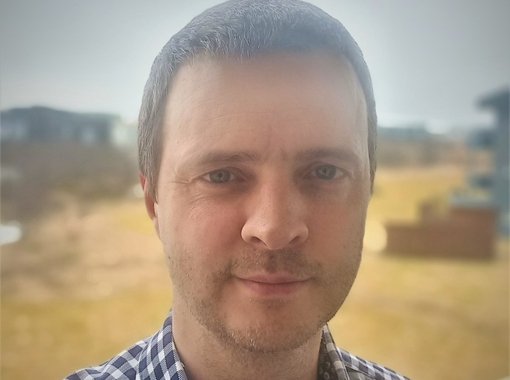Doctoral defence in Mechanical Engineering - Andri Ísak Þórhallsson

Aðalbygging
The Aula
The defence will be streamed live
Ph.D. student: Andri Ísak Þórhallsson
Dissertation title: Corrosion Behaviour of Materials in High-Temperature Geothermal Environments
Opponents:
Dr. Richard Barker, Associate Professor at the University of Leeds, UK
Dr. Marc Singer, Associate Professor at the University of Ohio, USA
Advisor: Dr. Sigrún Nanna Karlsdóttir, Professor at the Faculty of Industrial Engineering, Mechanical Engineering and Computer Science, University of Iceland
Doctoral committee:
Dr. Andri Stefánsson, Professor at the Faculty of Earth Sciences, University of Iceland
Dr. Christiaan Petrus Richter, Professor at the Faculty of Industrial Engineering, Mechanical Engineering and Computer Science, University of Iceland
Chair of Ceremony: Dr. Rúnar Unnþórsson, Professor and the Head of the Faculty of Industrial Engineering, Mechanical Engineering and Computer Science, University of Iceland
Abstract:
High enthalpy geothermal fluid utilization has a potential for growth for green and sustainable energy production. Geothermal energy production is often limited by the corrosive nature of the geofluids utilized. For successful, safe and economic operation, several technological challenges have to be overcome including the appropriate selection of material(s) for casing, pipelines and other equipment. This dissertation reports the results of a corrosion behaviour study for carbon steel and several corrosion-resistant alloys tested in contact with synthetic geothermal fluids at high temperatures. Corrosion tests were carried out using superheated steam (T = 350 °C and P = 10 barG) containing H2S, CO2 and HCl and the materials tested were carbon steel, stainless steel, nickel-based alloys, titanium alloys, high-entropy alloys. Some of the materials were further tested after silica (SiO2) had been deposited on the surfaces, and under boiling and condensing conditions at lower temperatures. In superheated fluid, carbon steel and Cu added high entropy alloys (HEAs) were prone to corrosion damage but negligible damages were observed in other corrosion-resistant alloys. The carbon steel was prone to more severe corrosion damage in the boiling and condensing conditions in comparison with the superheated test fluid and hence, the corrosion behaviour of carbon steel can be associated with the physical condition and temperature of the corrosive fluid. The extent of corrosion damage of Cu added high-entropy alloys (HEAs) in the superheated fluid is associated with increased Cu content and Cu-rich intermetallics. The corrosion rates of various materials were assessed by the mass loss method (MLM) and were less than 0.1 mm/year in all cases. Microstructural analysis was done via scanning electron microscope (SEM), X-ray energy dispersive spectroscopy (XEDS) and with solid and powder X-ray diffractometer (XRD). From the results, it can be concluded that the corrosion-resistant alloys are immune to corrosion damage in high-enthalpy superheated geothermal fluid containing H2S, CO2 and HCl and should be selected in preference to carbon steels and Cu added HEAs in such environments.
About the doctoral candidate:
Andri Ísak Þórhallsson was born in 1980 and has a B.Sc. degree in chemical engineering from the University of Iceland and an M.Sc. degree in chemical engineering from the Royal Institute of Technology, KTH, Sweden. After his graduation, Andri worked as an engineer and technical manager in an aluminium reduction plant. He started his PhD studies in 2016 and is currently a production manager at a paint production company in Iceland. Andri is married to Ragnheiður Guðmundsdóttir and they have three children.
Andri Ísak Þórhallsson



